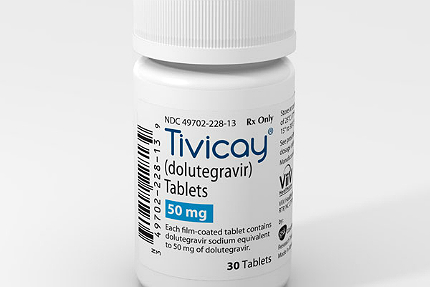Kenya and Unitaid have introduced a new first-line drug Dolutegravir (DTG) for people living with HIV, making Kenya among first few African country to introduce the generic version of this new drug for routine use.
Nigeria introduced the drug as part of new guidelines for treatment of HIV last year.
Dolutegravir has been a drug of choice in high-income countries as it has very few side effects, is easier to take than currently used formulations (one small tablet taken daily), and patients are less likely to develop resistance.
In 2015, the World Health Organization (WHO) recommended DTG as an alternative first-line regimen for adults and adolescents. But until recently, people living with HIV in countries like Kenya were not able to access DTG.
“We are delighted to partner with Unitaid on this innovative project that will no doubt improve the lives of Kenyans living with HIV, build healthcare worker experience, and generate the evidence needed to introduce DTG on a larger scale by early 2018,” said Dr Jackson Kioko, Director of Medical Services at Kenya’s Ministry of Health.
Kenya’s health ministry will initially provide DTG to 27,000 people living with HIV who are unable to tolerate the side effects of efavirenz, the first-line HIV drug currently in use in Kenya, also introduced in Nigeria.
The new drug will be introduced in select health facilities across the country, with the aim of making the drug widely available nationwide later in the year.
Numerous phase 3 clinical trials have shown DTG to be superior than all other first line treatments, and in 2016 Kenya included the drug into its antiretroviral therapy (ART) treatment guidelines.
“New regimens including DTG offer great potential for better and less costly HIV treatment,” said Lelio Marmora, Unitaid Executive Director.
“Through this catalytic work, we are significantly reducing the time it takes for people living with HIV in countries like Kenya to access the latest ARVs on the market. These are important developments as we move towards HIV treatment for all in need.”
More than 18 million people are on life-long HIV treatment worldwide, but an almost equal number do not have access to treatment yet. In Kenya, approximately 1.5 million people are living with HIV, and just over one million are currently on ARVs.
Unitaid is investing US$ 67 million to address this pressing need in an effort to avoid delays of more than 10 years before new drugs can be introduced in low- and middle-income countries. This catalytic intervention also provides a key opportunity to test DTG’s use in routine treatment for the first time and prepare national distribution channels.


























